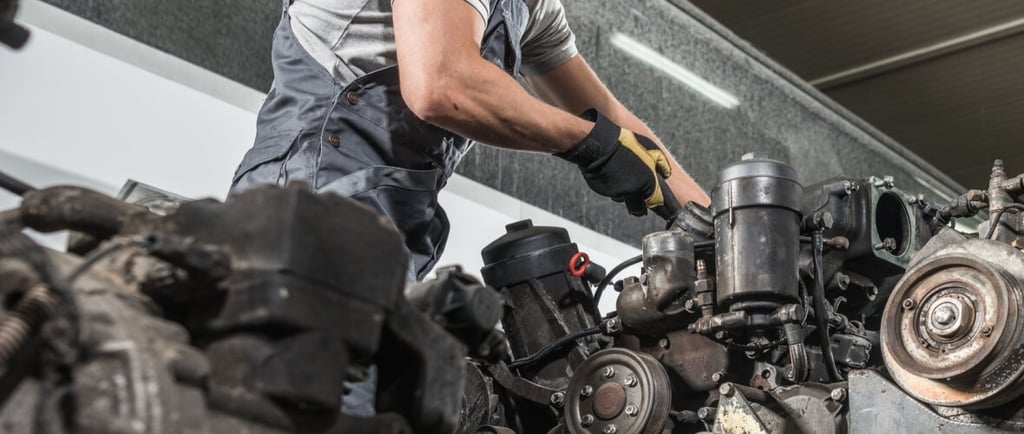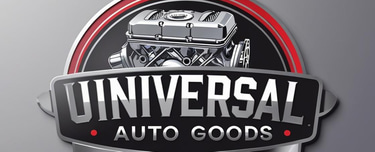Low mileage Engines and Transmission
📞CALL NOW +1 888-508-8804 Or Chat ON Whatsapp
How Much Does a Second-Hand Engine Cost?
Deciding to replace your vehicle's engine with a second-hand one can be a smart, cost-effective solution to avoid the high expense of a new car purchase. However, understanding the factors that influence the cost of a used engine is crucial for making an informed decision. In this guide, we’ll break down the pricing, benefits, risks, and key considerations when purchasing a second-hand engine. 🛠️ Factors Influencing the Cost of a Second-Hand Engine The price of a used engine can vary widely based on several factors:
Universal Auto Goods
8/14/20254 min read


How Much Does a Second-Hand Engine Cost?
Deciding to replace your vehicle's engine with a second-hand one can be a smart, cost-effective solution to avoid the high expense of a new car purchase. However, understanding the factors that influence the cost of a used engine is crucial for making an informed decision. In this guide, we’ll break down the pricing, benefits, risks, and key considerations when purchasing a second-hand engine.
🛠️ Factors Influencing the Cost of a Second-Hand Engine
The price of a used engine can vary widely based on several factors:
Engine Size and Type:
Smaller engines, such as 4-cylinders, are generally more affordable. For instance, a used 4-cylinder engine can cost as little as $400–$700, while V6 and V8 engines may range from $1,000 to $3,000 or more depending on the vehicle type and engine condition 116.Vehicle Make and Model:
Engines for popular domestic cars are often cheaper than those for luxury or imported vehicles. Availability plays a significant role here—common models have more parts in circulation, reducing costs 116.Mileage and Age:
Lower mileage typically commands a higher price. A useful rule of thumb is to look for engines with an average of 15,000 miles per year. For example, a 5-year-old engine with 75,000 miles may be priced higher than one with 120,000 miles 511.Condition and Testing:
Engines that are tested (e.g., compression tests, run tests) and come with a warranty are priced higher. Untested engines from less reputable sources may seem cheaper initially but pose a greater risk 512.Source and Warranty:
Purchasing from a reputable supplier like Universal Auto Goods or Car Part Planet often includes warranties and guarantees, adding to the cost but providing peace of mind. Warranties can range from 30 days to 5 years, impacting the price significantly 312.Shipping and Additional Costs:
Freight charges are usually not included in the listed price and can add $200–$500 to the total cost. Additionally, ancillary parts like water pumps, belts, or sensors may need replacement, further increasing expenses 115.
💰 Estimated Cost Breakdown
Engine TypePrice Range (Used)Price Range (Rebuilt)Notes4-Cylinder$400 – $1,500$2,000 – $3,000Common in economy carsV6$800 – $2,500$3,000 – $4,500Mid-range vehicles and SUVsV8$1,000 – $3,500$3,500 – $5,500+Trucks and performance vehiclesDiesel Engines$1,500 – $4,000$4,000 – $7,000Higher due to complexity
💸 Additional Costs:
Labor: Installation typically takes 10–15 hours, with labor rates ranging from $90–$150 per hour. Total labor costs can add $1,000–$1,800 116.
Parts and Fluids: New oil, coolant, gaskets, and other materials may cost $100–$300 1.
Core Charge: Some suppliers charge a core fee (e.g., $200–$500), refundable upon returning the old engine 12.
🤔 Is a Second-Hand Engine Worth It?
Replacing your engine with a used one can be a financially sound decision if:
Your vehicle is otherwise in good condition (e.g., well-maintained interior, body, and tires).
You’ve recently invested in other repairs (e.g., new brakes or transmission).
The cost of replacement is lower than buying a new car, especially if you still owe money on your current vehicle 116.
✅ Advantages:
Cost Savings: Significantly cheaper than a new engine or new car.
Environmental Benefits: Red waste and energy consumption compared to manufacturing a new engine 6.
Warranty Options: Many reputable suppliers offer warranties for added protection 12.
⚠️ Risks:
Unknown History: Untested engines may have hidden issues.
Compatibility Problems: Incorrect installation can lead to performance issues.
Short Lifespan: High-mileage engines may not last as long as rebuilt or new ones 511.
🔍 Tips for Buying a Second-Hand Engine
Research Suppliers: Choose a reputable dealer with positive reviews and certifications. Avoid sellers without a physical address or clear contact information 511.
Verify Compatibility: Ensure the engine matches your vehicle’s make, model, and year. Use your VIN for accurate matching 12.
Check Testing and History: Opt for engines that have undergone compression or run tests. Request maintenance records if available 511.
Inspect Warranty Terms: Look for warranties covering both parts and labor. For example, Car Part Planet offers up to 5-year unlimited mileage warranties 12.
Consider Rebuilt Engines: For greater reliability, consider rebuilt engines, which are refurbished to meet or exceed OEM standards 12.
Factor in Total Costs: Include shipping, labor, and ancillary parts in your budget 115.
❓ Frequently Asked Questions (FAQs)
Q1: Why should I consider buying a second-hand engine?
A: A used engine is a cost-effective way to extend your vehicle’s life without the high cost of a new car. It’s ideal if your car is otherwise in good condition but has engine issues 11.
Q2: How long does a used engine last?
A: With proper maintenance, a low-mileage used engine can last 100,000 miles or more. Rebuilt engines often last even longer—up to 150,000–200,000 miles 12.
Q3: What is the difference between a used, rebuilt, and remanufactured engine?
A:
Used Engine: Pulled from a vehicle and sold as-is. No parts are replaced.
Rebuilt Engine: Worn or damaged parts are replaced.
Remanufactured Engine: Completely disassembled, cleaned, and restored to like-new condition with all parts replaced or re-machined 12.
Q4: Are there warranties for second-hand engines?
A: Yes, reputable suppliers often offer warranties ranging from 30 days to 5 years. Always read the terms to understand what is covered 12.
Q5: How do I ensure the engine is compatible with my vehicle?
A: Provide the supplier with your vehicle’s year, make, model, and VIN. They can use this information to find a compatible engine 12.
Q6: What additional costs should I expect?
A: Beyond the engine cost, budget for shipping, labor, fluids, and potential ancillary parts like water pumps or belts 115.
Q7: Can I install the engine myself?
A: Unless you have advanced mechanical skills, hiring a professional is recommended. Incorrect installation can lead to performance issues or void warranties 15.
Q8: What should I do if the engine fails after installation?
A: Contact the supplier immediately if the engine is under warranty. Provide details about the issue and work with them to resolve it 15.
💡 Conclusion
Purchasing a second-hand engine can be a practical and economical choice for vehicle owners facing engine failure. Prices typically range from $400 to $3,500, depending on the engine type, mileage, and source. By choosing a reputable supplier, verifying compatibility, and factoring in additional costs, you can make a smart investment that extends your vehicle’s life without breaking the bank.
At Universal Auto Goods, we offer 8,000+ inspected and tested engines with warranties to ensure reliability and peace of mind. Let us help you find the perfect match for your vehicle! 3
🔗 Explore Our Inventory Today!
Ready to find a second-hand engine for your car? Visit Universal Auto Goods to browse our extensive selection and speak with our engine experts!
Quality
Affordable used auto parts for various vehicles.
contact us
Subscribe
+1 888-508-8804
© 2025. All rights reserved.Universal Auto Goods
